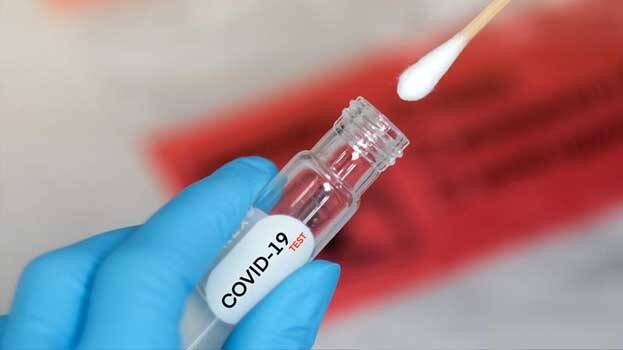

: Admin : 2020-06-26
The novel coronavirus is still raging in India and many parts of the world. The good news, however, is that the recovery rate is over 50 per cent in India as well as globally. The direct fatality rate is comparatively low for Covid-19 than some of the previous pandemics.
The disease is new and there is no clear answer to this question. Even the earliest patients who recovered in China got re-infected only a few months ago. There are not enough data to analyse the long-term effects of Covid-19. This is where it becomes scarier.
On June 14, a nurse working in Atlanta, US, posted a tweet saying, "When they say 'recovered' they don't tell you that that means you may need a lung transplant. Or that you may come back after d/c with a massive heart attack or stroke bc COVID makes (sic)."
Simply, the nurse red-flagged the long-term effects of Covid-19 on patients going home with a discharge slip from a hospital, feeling relieved but without an inkling how her health condition may unfold in coming weeks and months due to the coronavirus infection she just survived.
Standard Covid-19 protocol says an average patient recovers in two weeks and can be discharged. The WHO says critical cases can take up to six weeks for recovery. All recovered patients are advised home isolation for some time and report any new health condition immediately.
There is not enough verifiable data to know what percentage of Covid-19 patients come back to hospitals with serious health conditions after recovery. But studies in China and elsewhere give enough of a glimpse of what may be the long-term effects of Covid-19.
REDUCED LUNG CAPACITY
Studies have pointed to CT (computerised tomography) scans showing distinct changes in lungs of Covid-19 patients. Lungs of a healthy person appear black in CT scans, those of Covid-19 patients show grey patches, called ground-glass opacities.
These damages to lungs could be permanent, researchers suspect. Researchers in China found ground-glass opacities in over 70 per cent of Covid-19 patients.
Another study in China established that such lung scarring is not limited to critically ill Covid-19 patients but is seen even in asymptomatic patients. Those with mild symptoms also reported the same patches on their lungs.
Asymptomatic patients form the majority of all Covid-19 victims. Next come Covid-19 patients with mild symptoms. Direct critical conditions are reported in less than 15 per cent of all Covid-19 patients.
These ground-glass opacities are actually debris and pus. They form due to a strong immune response to the novel coronavirus, SARS-CoV-2. The debris makes lungs less pliable.
These patches are similar to those found in cases of SARS of 2002-03, caused by another coronavirus. A study mapping effect of SARS on patients over 15-year-period showed that more than one-third patients still had reduced lung capacity.
What makes Covid-19 more serious than SARS is that the novel coronavirus infection has been found to impact both lungs. In SARS and MERS, usually only one of the lungs was impacted by the coronavirus infection.
WEAKENED HEART
Covid-19 essentially being a respiratory illness reduces oxygen levels in the body of serious patients. Low oxygen levels in the body increase pressure on heart. This study concluded: "Coronavirus disease 2019 is associated with a high inflammatory burden that can induce vascular inflammation, myocarditis, and cardiac arrhythmias."
The Covid-19-causing coronavirus is understood to induce inflammation of heart muscles. The virus gets access to heart muscle cells as they have abundant number of ACE2 receptors, which have been found to be the entry gates for SARS-CoV-2.
That a weakened heart is associated with Covid-19 had been seen even in patients in Wuhan, the early epicentre of coronavirus pandemic. About 20 per cent of Covid-19 patients in Wuhan reported damage to heart.
But, as said earlier, there is still no clarity about the long-term damage of heart muscles. The question whether the damage is reversible or irreversible cannot be answered with authority at this point.
DAMAGE TO BRAIN, KIDNEYS
The brain is overly dependent on an uninhibited supply of oxygen by blood vessels. What doctors have found in Covid-19 patients is that many develop blood clots, which can cause brain stroke. Stroke was not diagnosed only among the elderly Covid-19 patients but also in young adults.
The clotting of blood can cause severe damage to other organs as well, such as lungs, heart and kidneys. During dialysis of some Covid-19 patients, doctors have found blood clots making their way up to the dialysis machines and clogging them.
Among other possible long-term effects of Covid-19 on recovering patients include impact on neurocognitive ability, increased level of anxiety and other psychological and mental health disorders.
Some other studies have indicated infertility as post-Covid health condition and recommended urogenital tract monitoring among men having recovered from Covid-19.
Disclaimer: This article is sourced from indiatoday.in without any changes in the contents thereof. Only the title has been edited by Meddco.com The facts and the opinions appearing in the article do not reflect and describe views of meddco.com
Meddco diseases Infectious Disease coronavirus covid-19 pandemic coronavirus coronavirus in India coronavirus test covid-19 test coronavirus treatment covid-19 treatment therapies book appointment affordable treatment packages surgery packages doctor near me hospital near me hospitals doctor
No Comments